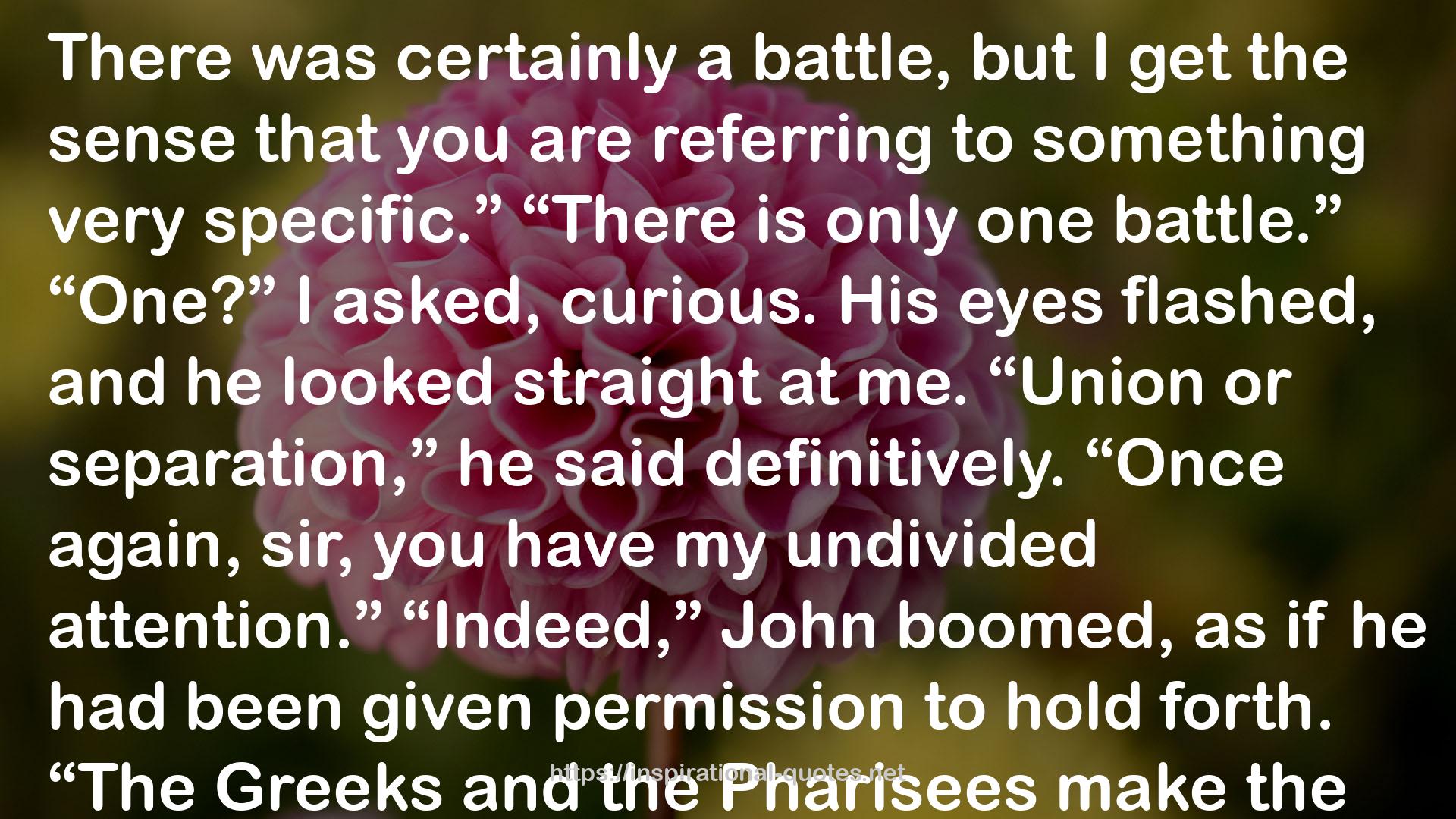" There was certainly a battle, but I get the sense that you are referring to something very specific.” “There is only one battle.” “One?” I asked, curious. His eyes flashed, and he looked straight at me. “Union or separation,” he said definitively. “Once again, sir, you have my undivided attention.” “Indeed,” John boomed, as if he had been given permission to hold forth. “The Greeks and the Pharisees make the same mistake, though in different ways—a large mistake,” he exclaimed, with a sigh of lament, “and apparently these Gnostics are their children.” I knew to the core of my soul that we had arrived at the heart of everything. I could see it in his face and in the way he held his head. I was not sure what he meant by union or separation, but it was clear that to him this was the crosshairs of the cosmos. “I think I could come up with some reasonable ideas about the connections between the Greeks and the Gnostics, but how could the Pharisees be connected?” “The truth of all truths: Jesus. Jesus in his Father and us in him. Without Jesus, what do you have?” “Not much, I reckon. Just ourselves.” “Ourselves and ideas of separation from God,” St. John declared in his most authoritative apostolic tone. “Listen, young Aidan.” And as I did, I felt that my world was about to be shattered. “The assumption of separation is the great darkness.” His words hit me like a blow to my gut, but before I could recover he continued on. “Then, you see, we have to find our way to God. The Greeks offer their way through their minds; the Pharisees offer theirs through external rules. This is Ophis’s chief trick—blind us to how close the Lord is, closer than breath: we’re in him, and he’s in us. Ophis deceives the nations by one lie—separation. Our joy”—his face lit up like the rising sun—“is to tell the truth, let the light shine—and persevere the tribulation of enlightenment.” “Wow, "
― C. Baxter Kruger , Patmos: Three Days, Two Men, One Extraordinary Conversation
